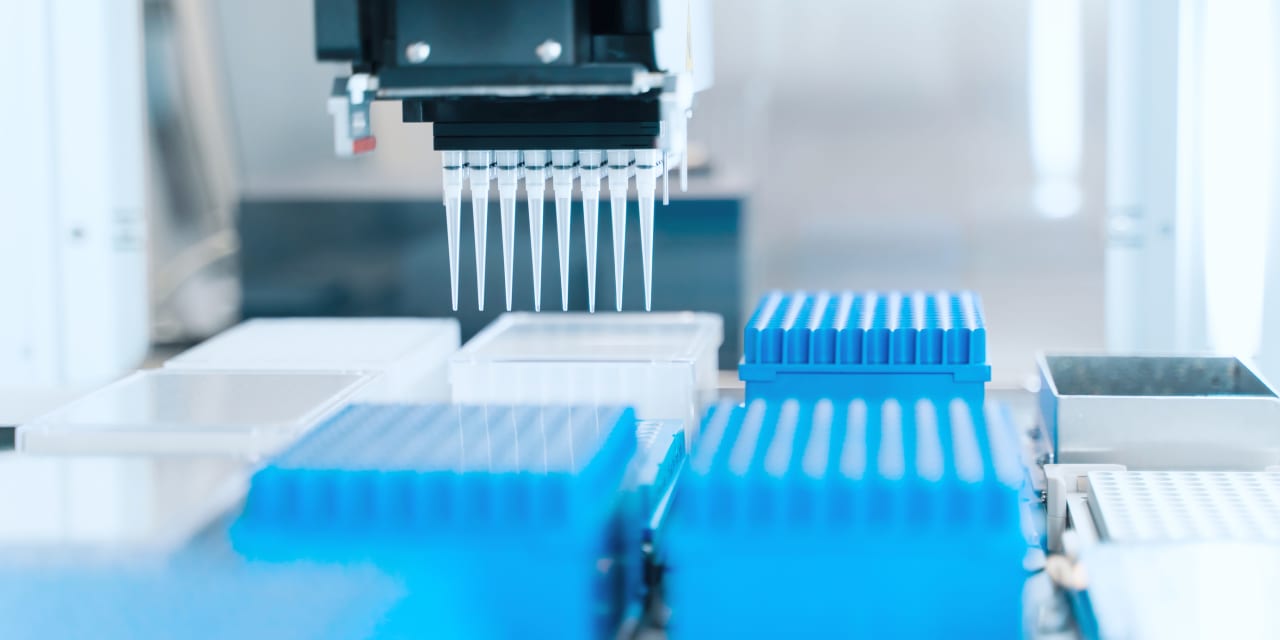Investors looking for signs that the Food and Drug Administration will allow more patients to use a new
Sarepta Therapeutics
gene therapy got exactly that on Friday morning.
The stock was up 11%, continuing a rebound from a single-day plunge of almost 38% in late October. The company said then a trial showed that patients who received Elevidys, the first gene therapy approved for children suffering from Duchenne muscular dystrophy, didn’t show a statistically significant improvement in the trial’s so-called primary endpoint over patients who received a placebo.
The primary endpoint is the main measure a trial uses to assess a drug’s performance.
Since then, strong sales data from the company, and a supportive comment from a top FDA official, have pushed Sarepta’s share price back above where it traded before the October selloff. While Elevidys is currently approved under the FDA’s accelerated approval program for DMD patients aged 4 and 5, Sarepta is seeking full approval of the treatment for any DMD patient.
Friday morning brought more positive news. In a statement, the company said that not only had the FDA agreed to consider its application for full approval without age restrictions based on the October data, but that the agency had said it didn’t plan to convene a meeting of its outside advisors to discuss the application.
What’s more, Sarepta said that the FDA will decide by June 21, months earlier than the company, and analysts, had expected.
In a wave of research notes early Friday, investment-bank research analysts wrote that the shortened timeline, and the lack of an advisory committee meeting, seemed to bode well for full approval without age restrictions.
“This earlier than expected review timeline, in our view, speaks to the FDA’s enthusiasm about expanding the label and converting the accelerated approval to a traditional approval,” Mizuho analyst Uy Ear wrote in a Friday morning note.
Sarepta shares were at $137.91 early Friday after trading as high as $144.40 in the premarket hours. The stock traded at $123.92 before the FDA issued its accelerated approval of Elevidys in June, then began to slide amid disappointment that the agency had placed narrow age restrictions on who should receive the therapy. Shares bottomed out at $55.25 following the release of the October data.
Elevidys, a one-time treatment that costs $3.2 million, works by causing patients’ own bodies to produce a small version of an important protein that works to strengthen muscles fibers. DMD is a progressive, fatal condition that manifests in early childhood, and causes muscle weakness and atrophy.
While investors had largely expected the FDA’s June approval of Elevidys, which came after months of regulatory drama, they hadn’t anticipated the age restrictions. The FDA said at the time of the approval that if the results of a continuing Phase 3 trial weren’t positive, it might withdraw the approval.
The results of that trial, announced in October, didn’t seem positive at first. But the company said at the time that the totality of the trial’s results did support expanding the label to older patients. Comments by Dr. Peter Marks, director of the FDA’s Center for Biologics Evaluation and Research, at a public event in January seemed to confirm Sarepta’s argument.
According to a report on the event published by its organizer, the healthcare news website STAT, Marks was asked in general terms if it matters whether gene therapies hit their primary endpoints in clinical trials. “We’d like them to meet their prespecified endpoints, but we are allowed to have some regulatory flexibility,” Mark replied.
That seems to point at room to broaden the approval of Elevidys despite its falling short of its primary endpoint. Also in January, Sarepta said that sales of Elevidys had been $200.4 million in 2023, well above expectations, which analysts said at the time pointed to high demand.
The Friday update seems to build the case that Elevidys could receive expanded approval this June. The treatment was tested in children up to age 7, but Sarepta wants to remove all age restrictions, and to allow the drug both in patients still able to walk, and in those who have lost that ability.
“We are particularly grateful for the Division’s prompt engagement and commitment to expediency by granting priority review and setting a June 21 review goal date,” the company’s CEO, Doug Ingram, said in a statement.
Sarepta had taken the unusual and aggressive step of requesting approval for Elevidys before the completion of the Phase 3 trial. If the drug ultimately receives full approval with a broader label this June, it would clear a pathway for other gene therapies seeking the FDA’s nod.
Write to Josh Nathan-Kazis at [email protected]
Read the full article here




